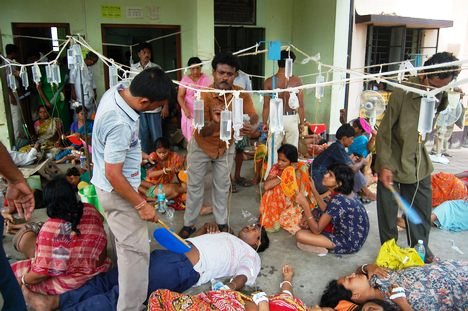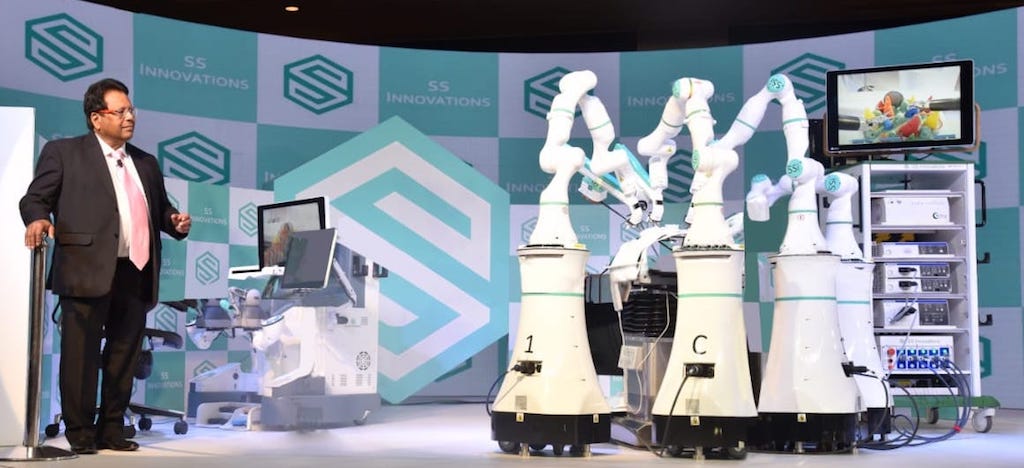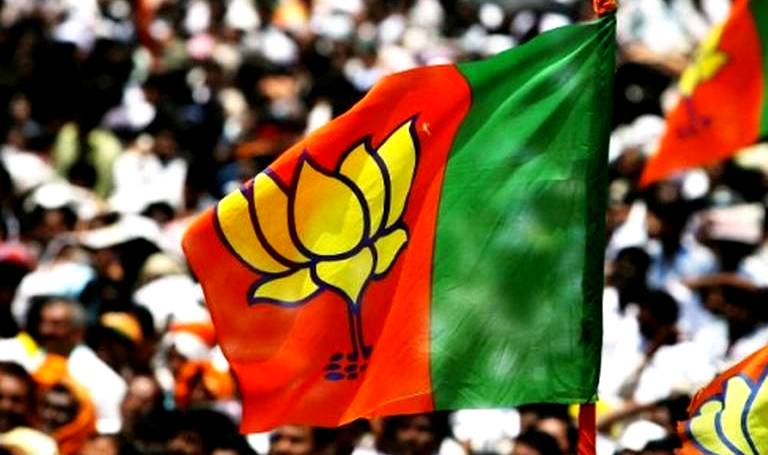Sangita Jha from Hisar
Health care has become very expensive with mushrooming private and corporate hospitals indulge in unethical practices to rob the gullible people of their money and peace. Insensitive doctors stoop down to any extend and indulge in unethical practices to make moolah.
Two years ago 66-year-old Bhateri Devi of Hisar in Haryana proudly showed triplets that she had given birth to at a controversial infertility centre. Foreign scribes scrambled to speak to her, who struggled even to understand Hindi, as Bhateri Devi was declared the oldest woman in the world to give birth. Amid the euphoria, an information officer of the Haryana state government in New Delhi took pains to convince Delhi-based journalists headed to Hisar to take a detour to check the fate of another old woman, after giving birth to a baby girl, was on her death bed.
A trip from New Delhi to Hisser will easily surprise anyone at the score of infertility centres dotting on the roadside. Bhateri Devi was also told by one such infertility centre, that she no longer needs to bear the taunts of being infertile. After being cajoled for over three months, she and her land-owning husband opted for the services and became proud parents a year later. But the information office wanted scribes to check the fate of Rajo Devi Lohan in Hisser only, who was dying after giving birth to a baby girl. Lohan had accused her infertility centre for not explaining the risks associated with such exercise.
Medical services in the last two decades have emerged as top business in India. Not only infertility but scores of ailments afflicting people in the hinterland of the country have made the superspeciality hospitals dotting the metropolis cities to rope in executives to bring the patients for treatment. Superspeciality hospitals having been established by corporates in metropolitan cities need supply of patients in big number too to keep them in the business.
In a country where the government had been negligent to focus on the primary health sector, it surprises to see mushrooming of so many superspeciality hospitals.
“Initially the superspeciality hospitals were confined to four metropolitan cities but they have branched out in state capitals. These hospitals are luring patients who should ideally have been going to primary health centres of the state governments. However, the governments in state or at the Centre have been callous in attending to the needs of primary health centres, which could be gauged from the fact that not only doctors and paramedics are most often found missing from them, they even do not have the basic facilities,” said a senior doctor of the RML hospital in New Delhi.
A senior medical practioner confided that the recent spurts in super speciality hospitals setting up health camp in the rural areas is in reality the very modus operandi to enlist patients for them. “Once in a month these hospitals put up health camp in rural areas within a distance that the patients could make if they were suspected to be suffering from any ailments for further treatment. These health camps are without any high-end medical equipment to conduct most of the medical tests. Suppose they examine 100 patients in one day, they will ask 20 of them to come to their hospitals for further tests after telling them that they had symptoms which needed close examinations and tests. This is the real motive of setting up of health camps by super speciality hospitals,” he explained.
However, it must be stated that there are some genuine NGOs too which in true spirit of the social service also sets up health camps in rural areas for free heath check ups. One of such NGO associate said that they not only take doctors along with them but move most of the medical equipment to conduct on the spot tests so that the patients need not go anywhere after the check up. “Our experience tells us that if we examine 100 people we fined 20 suffering from minor ailments for which we give medicine right there, while there are only one or two cases, which would require further examination for which we recommend them to go the nearest government hospitals,” said an associate of one NGO active in setting health camps in rural areas.
He, however, further explained that it’s tough to stick to pure social service. “It’s tough to get doctors to accompany for such health camps. Since we do not serve the purpose of the big private superspeciality hospitals, the monetary incentive for the doctors to undertake such a health cap is not there. Hence, even doctors from among the friends make excuses after one such trip,” said the NGO associate in Hisser.
What should ideally have been the case? There should have been a good network of primary health care owned by the government and equipped by good young doctors, whose rural posting for a couple of years in the beginning of their career should be compulsory, in the rural and semi-urban areas. These centres in turn should refer patients to hospitals higher in their hierarchy for complicated cases. But such a chain does not exist, which is clearly exploited by agents of the privately owned superspeciality hospitals.
If putting up health camp is one way of luring customers to the business of the superspeciality hospitals, the foreigners in India constitute another lucrative business with the help of students pursuing various courses from such countries.
“There is a well oiled network of foreign students who have access to the medical history of the foreigners staying in India who are tricked into consulting doctors for any ailments, which in fact is the beginning of their exploitation by such hospitals with students-turned-agents making huge commission big enough to keep the business going,” stated a doctor based in New Delhi.
Doctors do take pledge for the services to the humanity but they too have been clearly corrupted due to the allures of the huge money which could be made through some tweaking with their ethics. The corporate culture with a network of agents surviving on the commission has heralded a new wave of enlisting patients, who, otherwise, would have happily been treated at their own places had the services been in place.
As one medical practioner explained, that the healthy network of primary health centres in rural and blocks followed by secondary health centre at the district centres backed with tertiary health centres at state capitals should have kept the system and society healthy. But, he added, the link is broken, and people’s trust in the government run centres being low, there is a whole world for the greedy people to exploit, which flourish with non-existent cheks as well.
(This article was first published in Sopan Step.)









